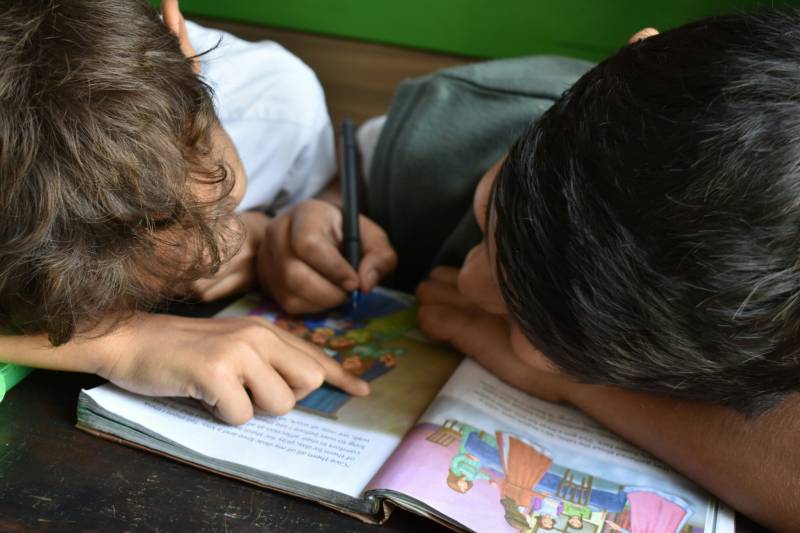At some point, you have built up enough understanding of the world to learn through reading, is that right?
If you’re a proficient reader, that’s a very efficient way of learning through reading. That’s the goal. But how do we enable students to acquire that kind of general knowledge? Really, the only way is through teaching them about a lot of specific topics because the vocabulary, the syntax, doesn’t stick in the abstract, it needs a meaningful context. But there are different ways for kids to acquire that general knowledge.
Why is background knowledge so important to reading comprehension?
Vocabulary and background knowledge are inextricably linked. So, if you’ve got baseball vocabulary, you’re going to have a better chance of understanding a text on baseball. If you’re practicing finding the main idea and you’re reading a text about the solar system and you have no idea what the solar system is, your ability to decode the words is probably not going to be enough. You need to have some background knowledge in place in order to acquire more knowledge from that text. To understand a word like “dynasty,” you need to have some idea of monarchies. You can’t just memorize the definition and really understand it, right? But you could acquire that understanding by learning about African dynasties, Asian dynasties, European dynasties, indigenous dynasties. There are lots of different paths to that goal.
Why is this an equity issue? Is it because we’re not really spending as much time on history and science in the classroom these days, but you don’t notice that as much with higher-income children because those families are better able to fill in the gaps outside of school?
That’s right. But I’ve heard from educators and administrators these days that even higher-income kids are coming in with poor oral language skills because people are on their phones so much, and even more affluent, more highly educated parents are not engaging in that kind of dialogue with kids that leads to rich oral language abilities. This has long been a problem with kids from less highly educated families. I think it really has to do with the level of parental education more than with socioeconomic status or race. If you have a poor kid whose parents both have Ph. D.s, but they’re struggling because they’re adjunct professors, that kid’s probably going to be exposed to a lot of academic language and vocabulary at home. But other kids rely on school for that. I’m not saying that education can completely level the playing field, but it could be doing way more than it is currently doing to give all kids the kind of exposure to academic knowledge and vocabulary that kids from highly educated families acquire more or less naturally.
So, it’s more related to education than income. Is part of the issue also that schools prefer inquiry-based learning to direct instruction? We let the kids try to figure things out on their own instead of explaining it to them.
Where this belief in discovery and inquiry has really taken hold is at the elementary level. I do think that this focus on comprehension skills and strategies, whether consciously or not, it’s connected to that idea that we shouldn’t be the ‘sages on the stages’ just pouring information into kids’ brains. If you teach them a skill, like finding them an idea or making inferences, then they can use that skill to discover knowledge on their own, acquire knowledge on their own. That’s the theory. But it often doesn’t work in practice. It’s hard to make an inference if you don’t really understand the subject matter. Some of these skills do need to be taught, but others really are just sort of natural outgrowths of knowledge. I want to make it clear, it’s not like you have to choose between building knowledge and teaching skills and strategies. It’s a question of what you put in the foreground.
Why are deep dives into a topic, say dinosaurs or mummies, more compelling for children than randomly chosen abstract passages to drive comprehension?
If you get deeply into a topic, it’s much more interesting than if you just skim the surface. … The power of narrative is really important. It doesn’t have to be fiction; it could be a story from history. I’ve seen second graders fascinated by the War of 1812. Teachers are like, how are second graders going to be able to deal with that? Well, if they’ve learned about the American Revolution and they have the background knowledge, they get fascinated by it because they understand what’s going on. They understand the issues, but they don’t know who won. They’re like, oh, no, America’s going to lose!

